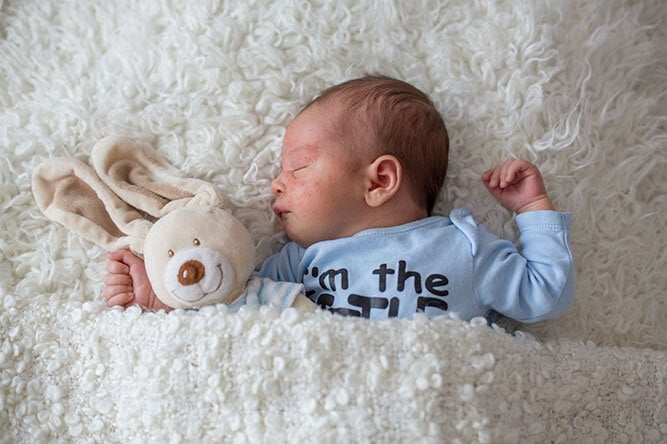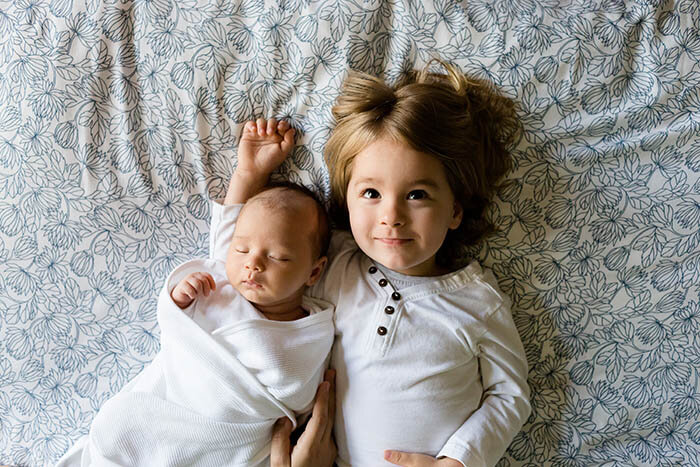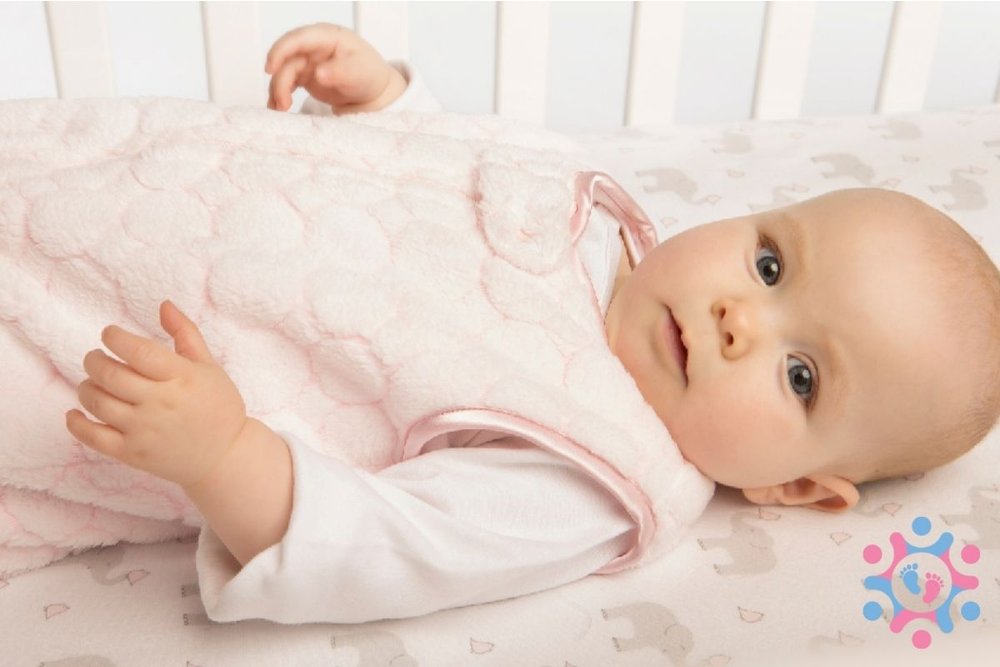Caring for Your Newborn’s Skin

Your new baby’s skin is so soft and smooth – no wonder you can’t stop kissing it! But there are some things you should know as a new parent when it comes to caring for your newborn’s skin.
Your baby’s skin is delicate and has a protective covering over it when they are born. This thick, white coating is called vernix. If you’ve ever seen a baby when they are first born, then you are most likely familiar with the cheese-like layer. This coating will peel off naturally during the first week of the baby’s life. If a baby is born past their due date, it likely had peeled off while still in the womb.
Because of the delicateness of your baby’s skin, there are a few common skin conditions that may occur during their first few months of life. Here are some of the most common and how to care for them.
Cradle Cap
Cradle cap is a crusty, greasy rash that appears on the scalp. This rash occurs when a build-up of sebum (which is produced by the glands) makes the skin cells stick together instead of shedding naturally.
To treat cradle cap, use mineral oil or petroleum jelly on the scalp areas. You will see it begin to clear up within a few weeks or months.
Milia
Milia are small white bumps that look like tiny whiteheads. You may find these on your baby’s gums.
There is no need to treat milia. It will go away on its own.
Prickly Heat
When a baby is overheated, they may break out in a rash on their back, chest, underarms, or neck area. This rash, also known as prickly heat, appears as red bumps or little blisters due to the blockage of sweat glands. Prickly heat occurs when the baby is in intense heat or too bundled.
Prickly heat will go away in time. Keep the baby protected from the sun, intense heat, and try lighten his or her clothing.
Newborn Acne
You may have thought acne is only for teenagers. That’s not the case. A newborn can also get acne or small pimples when the mother or baby’s hormones produce more sebum.
Newborn acne will typically go away on its own but may require treatment. It’s best to talk to your pediatrician if it doesn’t seem to be healing.
Keeping your baby’s skin clean and dry will help with some skin problems. A newborn does not need to bathe every day. It’s best to wash them only two to three times a week. Here are supplies needed for bath time with baby:
- Soft washcloths
- A basin or clean sink
- A towel or hooded towel
- Baby shampoo or soap (nonirritating and nonfragrant)
- A clean diaper
- Clean clothing
A few tips to keep in mind when bathing your newborn are:
- Make sure the room is warm, and there are no drafts. 75 degrees is best
- Test the bathwater on the inside of your wrist to make sure it’s not too hot or too cold
- NEVER take your hands off a baby during bath time. If you need to step away because you forgot something, wrap your baby in a clean towel and bring them with you.
- Start by washing your baby’s face.
- End by washing your baby’s head, be sure to protect their face during the process.
- Do NOT use cotton swabs to clean inside the baby’s ears. Doing this can cause damage to their eardrum.
- Do NOT use a blow dryer to dry the baby’s hair. A blow dryer is too hot for their delicate skin.
- DO follow your physicians’ directions when it comes to bathing around the umbilical cord.
If you do have questions about caring for your newborn baby’s skin, consult your pediatrician.


